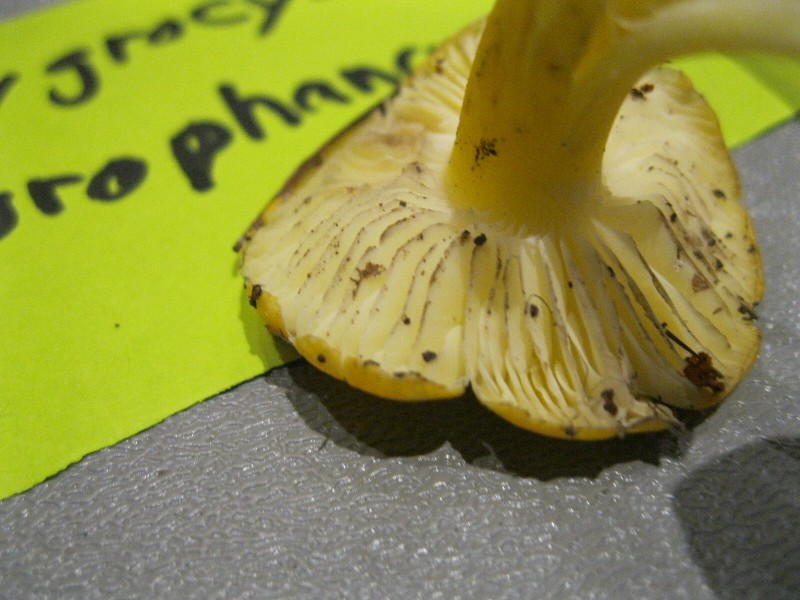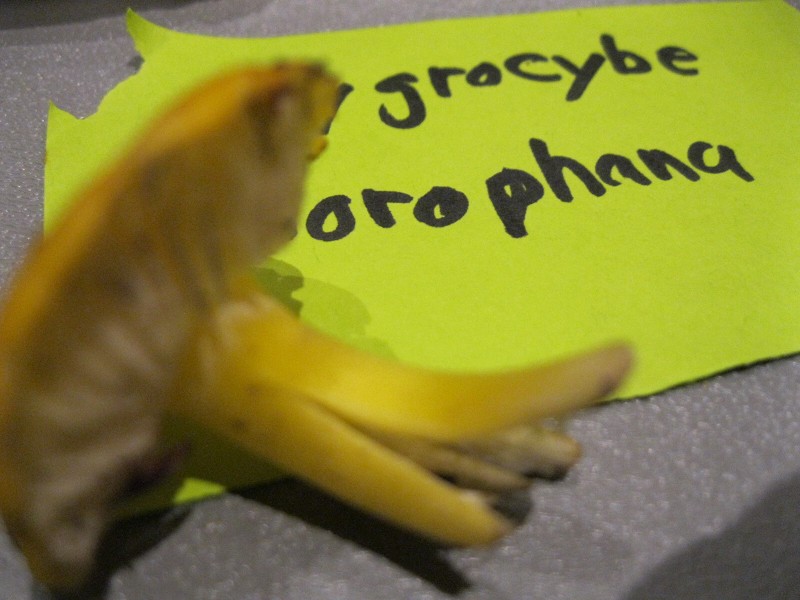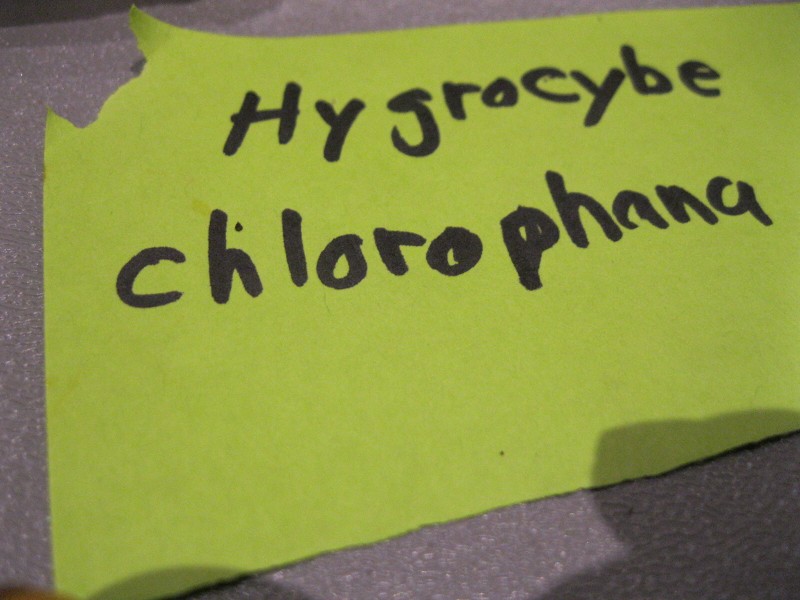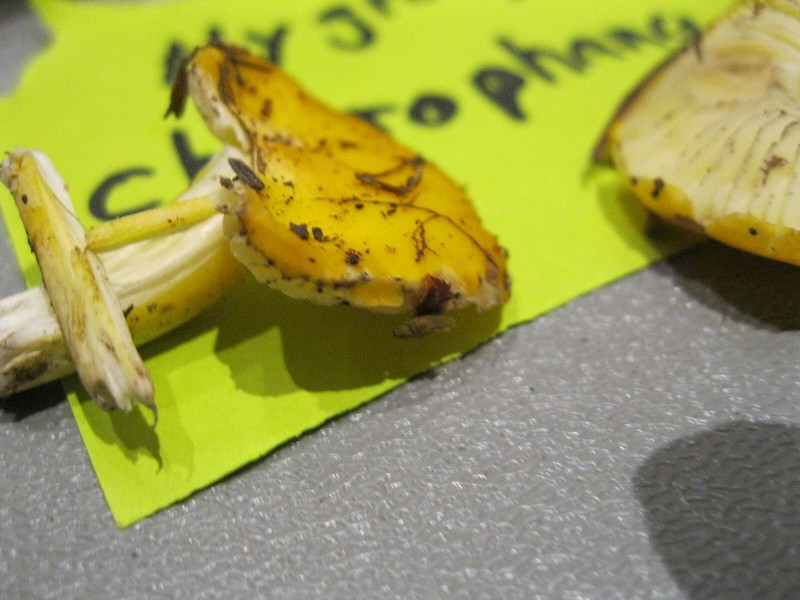



From Wikipedia.com
Hygrocybe chlorophana is of conservation concern, appearing on national red lists of threatened fungi.
From first-nature.com:
A common waxcap of cropped pasture and parkland, like nearly all waxcaps Hygrocybe chlorophana
is an autumn and early winter species. These lovely golden fungi are generally found in
small trooping groups; they are sometimes seen in churchyards, but sheep-grazed upland commons are usually much better places to try.
Although generally considered edible,
Golden Waxcaps are easily confused with other inedible yellow waxcap species
From rogersmushrooms.com
edibility: Inedible
fungus colour: Yellow
normal size: Less than 5cm
cap type: Convex to shield shaped
flesh: Mushroom slimy or sticky
spore colour: White, cream or yellowish
habitat: Grows in woods, Grows on the ground, Found in fields, lawns or on roadsides
Golden Waxcap (Fr:Fr.) Kummer syn. Hygrophorus chlorophanus (Fr.) Fr. Cap 2-4cm across,
convex then expanded to flat; deep lemon yellow with disc sometimes more orange-yellow; sticky,
with a striate margin. Gills adnexed, close, narrow; whitish to yellowish.
Stem 30-70 x 4-8mm, hollow; same color as cap; smooth and sticky.
Flesh thin; yellowish. Odor mild. Taste mild. Spores ellipsoid, nonamyloid, 7-8.75 x 4-5ì.
Deposit white. Habitat on soil in open woods. Uncommon.
Found in Europe and northern United States and southeast to Tennessee.
Season April-October. Edibility not known.
Comment Hygrophorus flavescens is extremely similar,
but the cap is more orange than yellow, and the stem, which is a bit slippery,
lacks the really sticky coating that is characteristic of Hygrophorus chlorophanus.